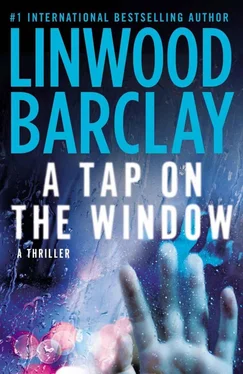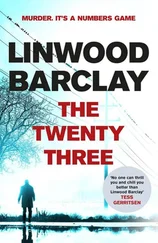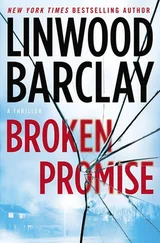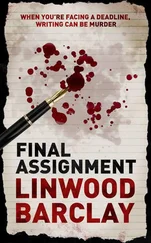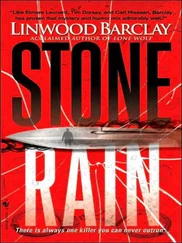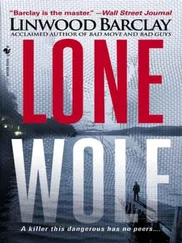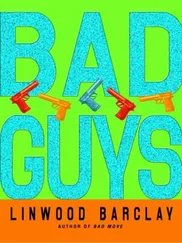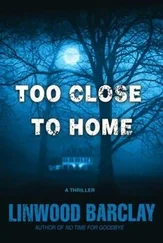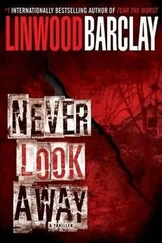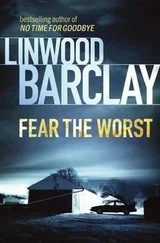Augie was on him a second later, stomping on the hand that still clung to the gun. Haines didn’t move.
Phyllis ran past me, screaming, fell to her knees at her son’s side, threw her arms around him and began to weep. Augie bent over, pried the gun from Haines’ dead fingers, and started to walk toward me.
He had a sudden look of alarm on his face. He was looking past me.
I spun around.
Donna was standing ten feet away, looking down, her hand pressed to her stomach, where there was a growing dark blotch.
Donna eyes met mine as she said, “Something’s wrong, Cal. I think something’s wrong.”
~ ~ ~
Phyllis Pearce lived, and the story came out. About how one night her son had cracked a chair across Harry Pearce’s back, then thrown him down the stairs. How they had covered up the crime, faked his death, and looked after him for seven years.
The rest we more or less knew.
Phyllis faced a raft of charges, including the unlawful confinement and murder of her husband, Harry Pearce. Even though she hadn’t actually strangled Hanna Rodomski, or shot Dennis Mullavey, she was charged as an accessory in those crimes, too.
Patchett’s was up for sale.
Augustus Perry submitted his resignation as Griffon’s chief of police, and Bert Sanders accepted it. Augie believed the actions of Officer Ricky Haines reflected so badly on his own leadership that he had no moral authority to continue leading the department. He was talking about moving to Florida with Beryl.
He wanted to put Griffon behind him as much as I did. We both carried a heavy burden from this place.
We were damaged men.
Haines wasn’t going to be facing a trial, of course. When they brought him into Emergency he had no vital signs. I think he may have been dead before he hit the pavement.
I’d never wanted to kill a man, but I was having a hard time working up any sense of remorse for what I’d done. First of all, I did it because Haines was firing at my brother-in-law.
So it was, as they say, justifiable.
But there was something else going through my head in the initial moments after I’d pulled the trigger twice.
This is for Scott .
What I didn’t know, and wouldn’t for another few seconds, was that it was for Donna, too.
It was that one wild round Haines got off when he ran past the end of the car. The bullet had ripped past me, past Phyllis Pearce, and found a home in Donna’s stomach.
I’d told her to stay in the house.
I’d told her.
Things had been looking so good, minutes earlier. I thought Phyllis had done something to Donna’s wrist, but she’d been holding it to keep the fixative from sliding out of the sleeve of my sweater.
Clever.
There have been some who’ve suggested, as horrible as it was, that maybe I should find some small comfort in the fact that Donna went quickly.
People say a lot of astonishingly stupid things when they’re trying to console you, and it can be hard to accept that they mean well. I suppose they think, in the overall scheme of things, in the course of a lifetime, that five minutes is quick.
It’s not.
Not when you are easing your wife gently down to the ground, rolling up your jacket to put under her head for a pillow, applying pressure to the wound, telling her that things are going to be okay, waiting to hear the siren of an approaching ambulance, wondering what’s taking it so long to get here, getting down on your knees and touching her hair and her face and telling her you love her and that she just has to hang in, that help is coming soon, putting your head close to her mouth so you can hear her whisper that she loves you, too, that she is scared, that she wants to know what it is you wanted to tell her, and you say you can’t wait to ride the cable cars, that as soon as she’s okay we’re going to go away, and she says that sounds nice, but she still doesn’t have anything to wear, and also doesn’t feel too good, and you tell her she’s going to be okay, that the ambulance is almost here even though you still don’t hear it, and she finds the strength to raise one hand and touch it to your cheek, and she says now it doesn’t even hurt that much, and that she’s not all that scared after all, that things really are going to be okay, and you tell her again to be quiet, to just hang in, and her hand comes away from your cheek and falls to her breast and her eyes go glassy and you finally hear the ambulance coming but it doesn’t matter anymore.
Five minutes. Long time.
More people turned out for the funeral than I might have expected. At least a hundred. Donna was more loved by her colleagues, and the entire Griffon Police Service, than she ever would have imagined.
I knew Augie would show up — it was his sister, after all — but I was still surprised when I saw him walk into the church with Beryl. I wasn’t surprised by his attendance, but by how quickly the events of the past few days had worn on him. His wife was a sapling next to Augie’s oaklike stature, but she seemed to be propping him up as they made their way to a pew.
It was blame and guilt eating us all up, like a cancer. Mayor Bert Sanders was feeling it, too. He had to be asking himself why he hadn’t kept a closer eye on Claire, why he’d been so easily duped when she’d said she was going to see her mother in Canada.
Annette Ravelson showed up, too, along with her husband, Kent. She made a point of not sitting anywhere near Mayor Bert Sanders.
I was relieved when Sanders offered to say a few words about Donna. I knew I wouldn’t be able to hold it together, and when I’d asked Augie if he wanted to say anything, he could only shake his head.
“Darkness has visited our town,” he said. “It has touched us all, but it has touched some more than others, and we mourn for them.” He was speaking, of course, about Hanna as well.
But not Ricky.
Instead of offering up one of those “insert name here” kind of eulogies, Sanders had asked around about Donna, particularly among her coworkers, and pulled together a brief, touching portrait of a woman who had already lost so much.
Besides the minister, there was one other speaker: a woman Donna’d kept in touch with over the years, and who’d gone all through public and high school with her. She uttered some nice platitudes. At least, I’m told they were nice. I’d stopped listening by that point. I was imagining being someplace else. Someplace with Donna and Scott. How I ached, sitting in that church, to believe in the tenets that had led to its construction. I had little expectation that I would find myself reunited with them one day.
The Skillings came. Sean, of course, had been released from jail, within twenty-four hours of Donna’s death. His parents were threatening a massive lawsuit that included the town of Griffon and Augie personally. I was betting the Rodomskis would get in on that.
They’d do what they had to do.
Then the service was over, and people were filing out of church, offering their condolences.
I was surprised to see Fritz Brott, owner of the butcher shop. He took my hand in his and squeezed.
“Read about this in the paper,” he said. “So sorry about your loss.”
“Thank you,” I said. “I’ve been meaning to call you. I made a promise to someone a few days ago.”
“Tony,” Fritz said.
“That’s right. Tony Fisk. I found myself in a situation... and he helped me out. I promised him I’d speak to you, ask you to maybe reconsider, give him another chance. I didn’t promise him I’d be successful, but that I’d at least make the pitch.”
Читать дальше
